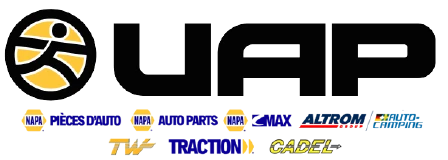Information Management Specialist 9729-2312
Job Summary
HM Note: This hybrid contract role is five (5) days in office. Candidates resumes must include first and last name.
Description
Position Summary:
We are seeking an experienced Information Management Specialist to support the development of the and nbsp;Enterprise Data Governance Program. This role will focus on the creation of enterprise-wide data standards policies and guidelines to support the development of common data products (e.g. Business 360). The ideal candidate will have a strong understanding of data governance principles data modeling and metadata management and will be skilled in translating technical and business requirements into clear actionable policy instruments.
Responsibilities:
- Provide expert knowledge of information management best practices approaches and trends as it relates to structured and unstructured information in support of business clients.
- Thorough knowledge of the information lifecycle to provide practical information analysis expertise and advice.
General Skills:
- Experience in:
- assessing and conducting business analyses to establish information management needs pertaining to different domains of information management (i.e. recordkeeping access and privacy etc.)
- developing business cases pertaining to information management;
- leading and/or coordinating information management-related initiatives;
- providing advice guidance and support for information management-related initiatives;
- developing document management protocols guidelines and best practices (e.g. business rules naming conventions version control document labelling etc.);
- developing business and records classification schemes using functional classification;
- assessing metadata requirements and developing metadata schema standards and management protocols;
- assessing training and awareness needs developing curricula and communications plans and delivering training pertaining to information management awareness concepts and principles to diverse audiences;
- providing routine advice and guidance on information management concepts and principles
- identifying Information Security and Privacy Classification requirements and their implementation in unstructured data applications;
- collaborating with business analysts business architects business intelligence specialists data architects data conversion specialists database administrators information architects project managers training specialists web specialists and any other individuals as required;
- relationship management between ministry clients and the OPS I and amp;IT organization;
- supporting business and information architecture in defining information management needs and priorities;
- participating in information management-related committees working groups etc.;
- developing and tracking information management performance measures;
- research and analysis skills as they pertain to information management-related environmental/jurisdictional scans business and information architecture legislation and policy documentation business process mapping maturity assessments etc.;
- planning and implementation of information management strategic goals and priorities;
- able to lead or support the development of a privacy impact assessment (PIA)
- Knowledge of and experience in applying recognized national and international standards in recordkeeping and information management;
- Knowledge of methodologies standards and principles of function-based classification of information;
- Knowledge of controlled vocabularies including taxonomies and thesauri;
- A team player with a track record for meeting deadlines.
Desirable Skills:
- Experience in developing business and records classification schemes using functional classification
- Knowledge of Enterprise Content Management/Records and Document Management solutions
Skills
Experience and Skill Set Requirements
Responsibilities:
- Provide expert knowledge of Enterprise Information Management (EIM) best practices methodologies approaches and trends as it relates to the holistic strategic management of structured and unstructured information assets in alignment with the broader OPS Enterprise Data Strategy.
- Draft and organize policy instruments (including but not limited to: policies standards guidelines processes procedures etc.) to support enterprise data products ensuring alignment with OPS Enterprise Data Strategy.
- Example: Drafting standards and guidelines to support enterprise data products such as Business 360 including rules for data capture and transformation.
- Consult with technical and business stakeholders (e.g. developers data architects business analysts) to identify data rules and requirements for data capture transformation and integration.
- Support the classification and stewardship of Critical and Enterprise-Critical Data Elements (CDEs/ECDEs) including metadata and data quality requirements. (MUST HAVE)
- Contribute to the development of canonical data models metadata schemas and classification schemes to enable consistent and interoperable data across the enterprise.
- Provide guidance and support for data lifecycle management including privacy security and retention practices.
- Participate in working groups and committees to advance enterprise data governance initiatives and promote adoption across the organization.
General Skills:
- Enterprise Information Management Knowledge and amp; Experience (30%)
- Assessing and conducting business analyses to establish data and information management needs pertaining to different domains of Enterprise Information Management including analysis of business and technical requirements related to data capture transformation and use; (MUST HAVE) and nbsp;
- Organizing and amp; classifying data assets according to widely recognized industry standards such as sensitivity security criticality data quality and data interoperability etc.; and nbsp; and nbsp;
- Developing business cases pertaining to information management;
- Leading and/or coordinating information management-related initiatives;
- Providing advice guidance and support for information management-related initiatives;
- Developing document management protocols guidelines and best practices (e.g. business rules naming conventions version control document labelling etc.);
- Developing data classification schemes for a wide range of data classification and metadata management functions (i.e. data quality data criticality data sensitivity data interoperability etc.); (MUST HAVE) and nbsp;
- Assessing metadata requirements and developing metadata schema standards and management protocols; (MUST HAVE)
- Assessing training and awareness needs developing curricula and communications plans and delivering training pertaining to information management awareness concepts and principles to diverse audiences;
- Providing routine advice and guidance on Enterprise Information Management concepts and principles
- Knowledge of and experience in applying recognized national and international standards in Enterprise Information Management; and (MUST HAVE)
- Knowledge of and development of controlled vocabularies ontologies taxonomies canonical data models and thesauri for enterprise use; (MUST HAVE)
- Enterprise Data Governance Knowledge and amp; Experience (30%)
- Applying data governance frameworks (e.g. DAMA-DMBOK) data lifecycle principles and metadata management practices. (MUST HAVE) and nbsp;
- Establishing business processes to manage data assets throughout the data management lifecycle at both a tactical and operational level (including procedures to manage quality interoperability data sharing security controls etc.; and nbsp;
- Drafting enterprise ready policy instruments (e.g. data standards guidelines etc.) that are computationally governable to streamline data management activities for both the development of specific data products and managing data at source; (MUST HAVE)
- Example: Developing standards to guide how business information is collected and transformed to support the development of a business data products and nbsp; and nbsp;
- Planning and implementation of information management strategic goals and priorities; and
- Knowledge of and experience in applying methodologies standards and principles in the discovery identification and classification of information and data assets.
- Communication and amp; Customer Service (15%)
- Effective in writing and drafting a wide range of policy instruments suitable for a wide range of audiences and users (including both technical and non-technical audiences);
- Strong presentation skills with proven experience preparing presentations slide decks and attractive visuals for a range of audiences (from executives to front-line staff);
- Collaborating with business analysts business architects business intelligence specialists data architects data conversion specialists database administrators information architects project managers training specialists web specialists and any other individuals as required; (MUST HAVE)
- Relationship management between ministry clients and the OPS I and amp;IT organization; and
- Participating in Enterprise Information Management-related committees working groups etc.;
- Analysis and amp; Problem Solving (25%)
- Supporting business information and data architecture in developing consumption-oriented data sets and tools to support both operational and analytical business needs and priorities
- Developing and tracking Enterprise Information Management performance measures;
- Conducting policy research and analysis skills to support and nbsp;development of policy deliverables and tools that enable and nbsp;implementation of Enterprise Information Management programs and practices across the organization
- Example: Environmental/jurisdictional scans business and information architecture legislation and policy documentation business process mapping maturity assessments.
Desirable and nbsp;Skills:
- Experience in developing canonical data models and complementary data instruments (e.g. policies standards guidelines procedures etc.) and nbsp;
Must Haves:
- Experience in developing business and records classification schemes using functional classification
- Knowledge of Enterprise Content Management/Records and Document Management solutions
- Assessing and conducting business analyses to establish data and information management needs pertaining to different domains of Enterprise Information Management including analysis of business and technical requirements related to data capture transformation and use
- Developing data classification schemes for a wide range of data classification and metadata management functions (i.e. data quality data criticality data sensitivity data interoperability etc.);
- Assessing metadata requirements and developing metadata schema standards and management protocols;
- Knowledge of and experience in applying recognized national and international standards in Enterprise Information Management; and
- Knowledge of and development of controlled vocabularies ontologies taxonomies canonical data models and thesauri for enterprise use;
- Applying data governance frameworks (e.g. DAMA-DMBOK) data lifecycle principles and metadata management practices.
- Drafting enterprise ready policy instruments (e.g. data standards guidelines etc.) that are computationally governable to streamline data management activities for both the development of specific data products and managing data at source;
Key Skills
- Information Management
- HIPAA
- FIPS
- Records Management
- Windows
- System Security
- NIST Standards
- IT Support
- DIACAP
- Medical Records
- FISMA
- RMF







